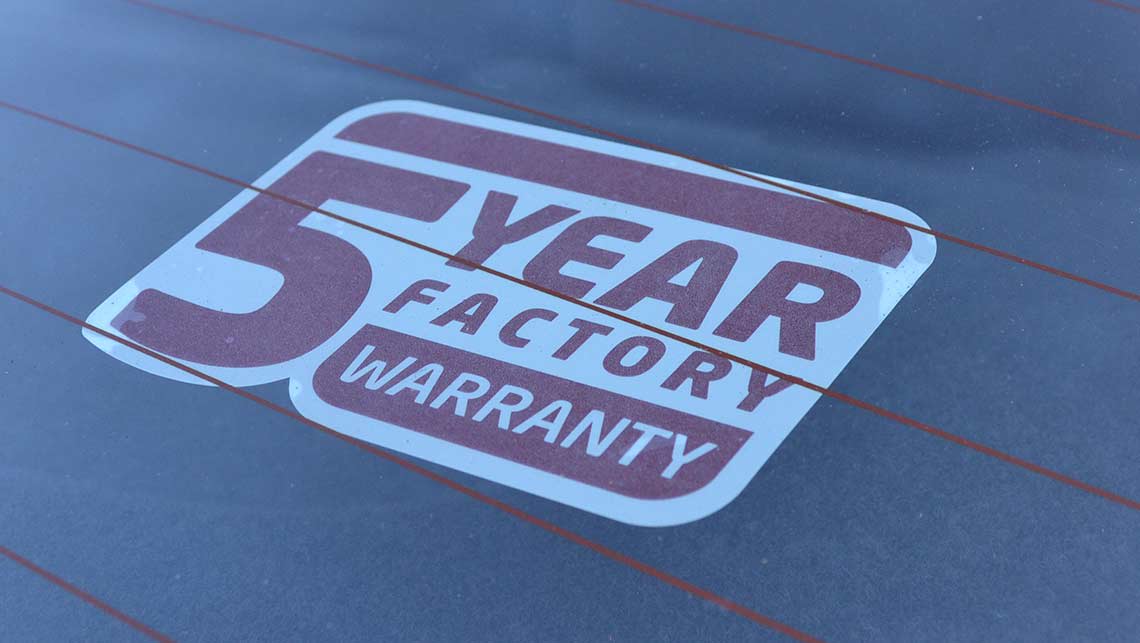
How much does it cost to replace a windscreen?
This used to be a simple question since most car windscreens were made from the...
Browse over 9,000 car reviews

But the reality is that cars are complex machines, and like all things mechanical, they can malfunction and have defects.
The manufacturer's warranty is there to deal with those situations, and while it works fine most of the time and our cars are repaired and returned to us in good working order there are other times when carmakers aren't as forthcoming as we would like and expect them to be.
When that happens we need to know what we can do to resolve the situation.
Understand your warranty
When you first get your new car home break out the warranty booklet and read it.
Warranties don't cover things considered normal wear and tear items, that's predominantly tyres, brakes, clutches, etc., but also things like wiper blades and lights.
Understand what it covers, and take particular note of what it doesn't cover.
Warranties don't cover things considered normal wear and tear items, that's predominantly tyres, brakes, clutches, etc., but also things like wiper blades and lights.
Start with the dealer
The first place to go if there is a problem with your car is the dealer you bought it from.
Do not have the car worked on by anyone else, as that will make it more difficult to reach a resolution with the dealer/manufacturer.
The dealer/manufacturer must be given the chance to assess the car and make good any necessary repairs.
If you suspect your car has a problem that needs rectification report it to your dealer straight away, do not wait until the next service.
Discuss your concern with the dealer's service staff and if necessary demonstrate what the car is doing and why you believe it's a problem.
In most cases there will be no issue and the problem will be rectified without question.
Take it to the carmaker
If for some reason you are rejected at dealer level you can still take your claim directly to the manufacturer.
All manufacturers have customer assistance departments that are there to deal directly with owners on all manner of things.
Details on how to contact the departments can be found on the various company websites.
Make the phonecall, explain what it is you're concerned about on your car and why you believe it to be a problem the company should address.
Go to the top
If the carmaker's customer assistance people reject you it's possible to go even higher, right to the top.
While it's not guaranteed to get you the outcome you want it's worth considering writing directly to the CEO of the manufacturer involved clearly setting out your concerns and why you think it's a problem, and ask for their assistance in reaching a resolution.
Consult the government
If all your efforts with the dealer/manufacturer prove fruitless there is always the consumer protection law to fall back on.
New consumer protection laws came into force in January 2011 giving consumers greater protection when a product they bought proves to be defective.
The laws apply to most goods and services, including new and used cars, except those bought at auction or privately.
Importantly the laws apply over and above the manufacturer's warranty, and they automatically apply to everything we buy. Even better they continue to apply long after the manufacturer's warranty has run out.
The laws are uniform across all states and territories. For more information on the state and territory consumer affairs or fair trading departments to contact go to the ACCC website.
Fit for purpose
Under the Australian Consumer Law (ACL) cars must be fit for the purposes they are normally used for, they must be of acceptable quality, free of defects, safe and durable.
Under the ACL you can ask for a repair, replacement or refund if you believe your car is defective.
To get a replacement car or a refund of your money the defect must be a major one
If the problem is of a minor nature the dealer is entitled to repair it, provided it's done in a timely manner. But to get a replacement car or a refund of your money the defect must be a major one.
A major problem would be one that had you known about it you wouldn't have bought the car, one that made it unsafe, made it different to what you were told it would be, or doesn't do what the dealer or manufacturer said it would.
Is my car a lemon?
Our consumer protection laws are nowhere near as tough as the laws in America, which have specific measures by which to establish if a car is a lemon or not.
To prove a car is a lemon here is very difficult and you need to be prepared to go through a long and potentially expensive negotiation, probably involving lawyers, where the burden of responsibility for proving your case falls to you.










Comments